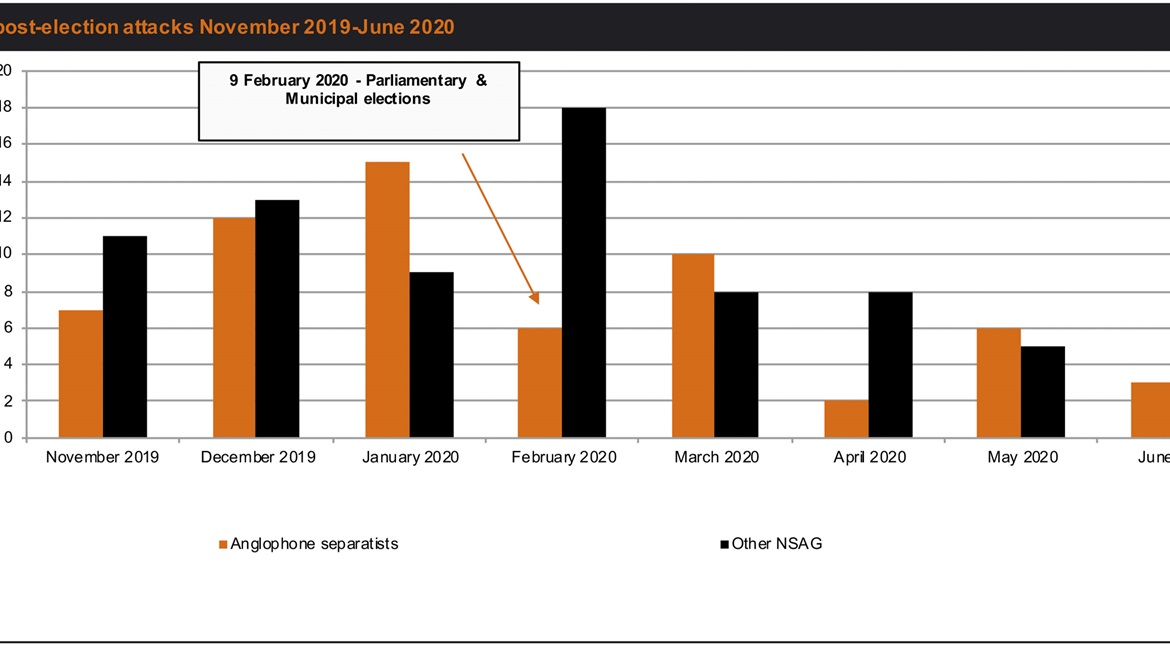
In early July, peace negotiations began between one of the Anglophone Cameroon separatist groups (led by incarcerated leader Sisiku Julius Ayuk Tabe) and representatives of the Cameroonian government. Although the ‘Anglophone question’ is a long-standing feature of Cameroonian politics, it has become particularly acute in recent years. What began as a series of peaceful protests in October 2016 demanding that the Cameroonian government abide by the constitution has since escalated into a brutal conflict between Anglophone separatists and the Cameroonian government. Anglophone speakers living in the Nord-Ouest and Sud-Ouest regions constitute less than one-fifth of the country’s population; the area is also a stronghold for the country’s main opposition party. According to a Crisis Group report published in 2017, the protesters’ initial demands included that the government respect their right to use Common Law and the English language to administer these regions and a stop to the “francophonisation” of the country’s legal system. A heavy-handed security response to a lawyers’ strike in the Nord-Ouest and Sud-Ouest regions resulted in the spread of demonstrations (geographically and among different interest groups) and the expansion of the demonstrators’ grievances. Cyclical violence, including physical oppression and legal persecution, eventually led to the unilaterally declared independence of the Ambazonia region on 1 October 2017 by the Southern Cameroons Ambazonia Consortium United Front (SCACUF).

Looking to read the full article?
Gain unlimited access to Janes news and more...


